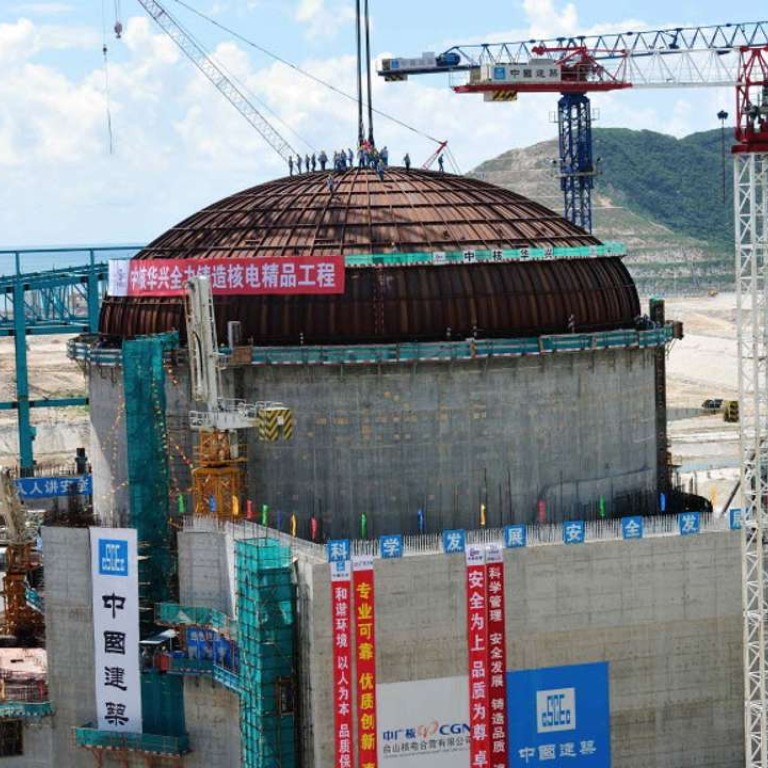
After brief pause, China rushes to build more nuclear power plants
China briefly halted approval of new nuclear power plants as it reviewed safety standards in the aftermath of the Fukushima nuclear disaster in 2011, but is now deeply embracing the energy source.
The country is keen to tap cleaner power to fuel its power-hungry economy in a way that doesn’t destroy the environment
The nation gets about 2 per cent of its electricity from nuclear power and aimed to raise the level to 6 per cent by 2020. The country is operating 30 plants with a capacity of 26.9GW and another 24 are under construction. They will add another 28.8GW when they come online.
The nation’s latest five-year plan calls for a dramatic increase non-fossil fuel energy sources, in part by accelerating development of coastal nuclear power plants by 2020 to 58GW.
The head of the China Atomic Energy Authority, Xu Dazhe, was quoted recently by Xinhua as saying the country needed to speed up its nuclear power development while improving safety standards for the industry.
China General Nuclear Power and rival China National Nuclear plan to build four more reactors on mainland
Apart from energy concerns, China has been eager to advance its nuclear missile technology to bring it in line with other leading powers but its drive has faced resistance from the international community.
China has about 240 nuclear warheads, according to a 2012 estimate by the Arms Control Association, a private non-partisan group in Washington. The United States, by contrast, has some 5,113, including tactical, strategic and non-deployed weapons.
Li Bin, a senior associate with the nuclear policy programme and Asia programme at the Carnegie Endowment for International Peace, said in an article that China would not “seek to amass a large nuclear arsenal for the purpose of global hegemony”.
Shinzo Abe says Japan ‘cannot do without’ nuclear power, on eve of Fukushima disaster
“A small and survivable nuclear force is enough for the purpose of security,” Li wrote.
President Xi Jinping detailed China’s nuclear security policies at an international conference in 2014. He said the nation would give top priority to the peaceful use of nuclear energy while managing nuclear materials and facilities by the highest standard. “China has maintained a good record of nuclear security in the past 50 years and more,” he said. Xi pledged to enhance the government’s regulatory capacity, increase investment in technology and talent while strengthening nuclear security capability.
Zhao Tong, a nuclear security specialist at the Carnegie-Tsinghua Centre for Global Policy, said it was inappropriate to apply a blanket legal framework developed by the West on China’s nuclear security.
Countries like the United States put anti-terrorism concerns at the centre of its nuclear security policy, while China preferred to address the problem through tackling its causes, Zhao said.
Additional reporting by Jun Mao

